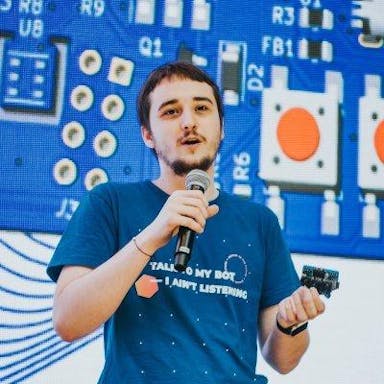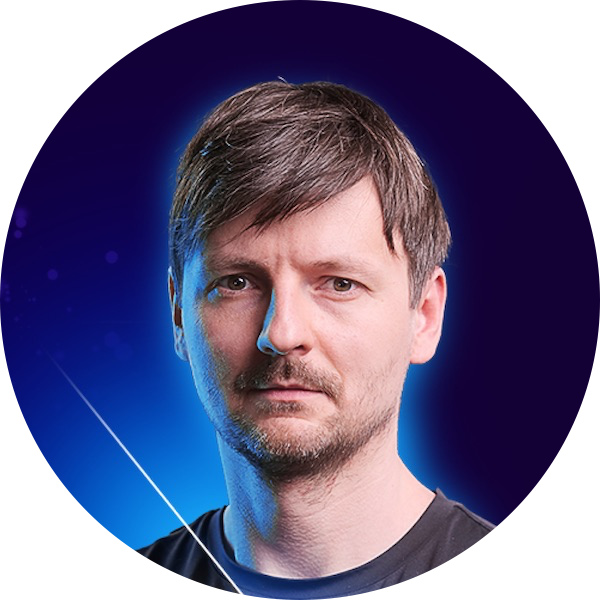February 2, 2024 · Warsaw, Poland
Kongres Next.js
Conference & Job Fair
Bridging the future with Next.js, Remix, Nuxt, Angular, React.js, TypeScript, Qwik, Astro, and beyond!
Technologies we use
Sponsors & Supporters
Silver Sponsors
Supporting Sponsors
Partners
Speakers
Dive into expertise with our dynamic speaker lineup at the Full-Stack Frontier Conference. From Next.js to Qwik, our speakers are leaders in web development, ready to share insights that will reshape your approach to full-stack applications. Join us for a knowledge-packed experience, and let innovation take center stage.

Elian Van Cutsem
Team DX at The Astro Technology Company

Kitze
Rectangle mover

Sylwia Vargas
Developer Relations strategist

Max Stoiber
CEO at Stellate

Ruby Jane Cabagnot
Software Developer at Sannsyn

Tomasz Ducin
Independent Consultant & Architect

Anjana Vakil

Alberto Schiabel
Open-source Software Engineer @ Prisma

Theodore Vorillas
Software Engineer at Proxima

Michał Michalczuk
Senior Fullstack Engineer @ Tektit Consulting

Adrian Pilarczyk
Senior Fullstack Developer at Saleor Commerce

Lena Sędkiewicz
Freelance Web Developer

Przemysław Łada
Python developer at Saleor Commerce

Jakub Wąsik
Fullstack Engineer @ Schibsted

Fran Zekan
Senior Engineer @ Unidy
Schedule
Discover the latest talks from the best speakers in the industry.
Registration
Check-in and get your badge. Grab a coffee, and meet other attendees.
Event Opening
Come be part of our event for warm greetings and important announcements.
GitHub stars won't pay your rent
Kitze

Kitze shares his journey as the founder of Sizzy, from an open-source project to a paid product. He talks about the challenges he faced, tough decisions he made, and his struggle with an existential crisis. Attendees will gain insight into the complexities of building a successful product and the importance of self-care.
Back in the game: Recent Revolutionary Changes in Angular
Tomasz Ducin

Angular has been perceived as a rather complex framework by some, yet it's used massively by enterprise-scale systems. Whether we agree with the criticism or not, the framework is undergoing a monumental transformation. In recent months, Angular is experiencing a period of frequent and significant updates and - at least considering previous years of stagnation - groundbreaking changes. These include not only the features, public API and architecture, but also to the mental models that developers come up with.
Let's review the best concepts introduced to most recent versions of Angular and analyze the architectural and DX benefits they bring, as well as their downsides. We'll also compare the most recent solutions to competing frameworks.
Next.js is my main web server for all APIs. And I like it!
Michał Michalczuk

Why you won’t use anything more specialised like Fastify or Nest? Why you are using Next.js not in the way it was designed? You might ask.
Because it is way good enough for my cases, and more flexible than I initially thought.
In this presentation, I’ll give you arguments for betting on Next.js as a delivery layer for your REST & GraphQL APIs.
With a sip of middleware, some libraries, and tweaking the next.config you can squeeze a lot from it. But .. is it performant? Well, we will see :)
Coffee Break 1
Coffee Break 1
Astro: Built Fast by Default
Ruby Jane Cabagnot

Astro version 4.0 just launched, allowing developers to build server-rendered websites with any JavaScript framework. It uses the Islands architecture and partial hydration to deliver fast apps with frameworks like React, Vue, Svelte, and more. Could this be the ultimate web framework? Let's find out.
Focus on Astro's commitment to performance. We'll examine how its architecture inherently leads to faster websites, impacting user engagement and conversions, and how it achieves this through less reliance on client-side JavaScript.
It Takes a Nation of Millions to Hold Us Back
Theodore Vorillas

Next.js is a popular tool for building rich web applications. In this presentation, I will show you how to scale your Next.js application from a small number of users to millions without breaking the bank or getting tied to a specific hosting platform.
Using industry standards like Docker, CI/CD pipelines and git we'll walk together through the art of building scalable applications that can seamlessly adapt to your business's growth trajectory.
Background jobs 101: building reliable apps with Inngest
Sylwia Vargas

This talk offers a gentle introduction to a new paradigm of durable workflows by walking the audience through a common use case: user onboarding email campaign.
I’ll show how the DIY approaches tend to be slow and unreliable — or require significant investment of resources. Instead, by embracing background jobs you can deliver a great User Experience and stress-free ops.
Given how more and more companies favor short development cycles and lean approach to headcount, being able to own entire business workflows end-to-end turns (formerly) front-end teams into empowered product teams.
Rethinking frontend architectures with data layers
Max Stoiber

After speaking with thousands of engineers at hundreds of companies, we noticed a peculiar pattern in how the fastest-moving companies manage the interface between backend and frontend: they all have a data layer. Let's dive into what data layers are, why these companies can move faster by having them, and how you can build your own with Fuse.js, a framework tailor-made for frontend teams to build data layers.
Lunch Break
Enjoy a spread of sandwiches and finger foods. Meet other attendees and make new connections.
Refreshing talks:
A series of short talks to refresh your mind and get you ready for the second half of the day.
Each talk lasts 5-7 minutes and you can find their descriptions below.
URL: your state management solution for Next.js 14
Adrian Pilarczyk

Since Next.js 14 released, many people are wondering how the latest changes affect its state management landscape. Since there is quite a lot of ground to cover, I would like to focus on only one piece of it that gets mentioned more frequently than ever: the URL.
In many recents comments, it seems like the Next.js team wanted to remind us of a state management solution that is global, reliable, and providing unique benefits. In my talk, I want to show how far you can go with managing state in the URL, when it makes sense to use it and when you really shouldn't.
Expect to cover all the Next.js hooks that make up the URL state management toolkit, how we can create our own URL abstraction of React's `useState` hook, how to use nested routes to express the state of UI in the URL, and many more. All of that, on a practical example of an e-commerce shop.
WordPress Wars. Is React a New Winner?
Lena Sędkiewicz

Everybody knows WordPress. Some love it, some hate it. But in recent years it evolved in a direction where being a WordPress dev can mean different things. On one side we have people who base on plugins, configuration skills and some HTML and CSS added. On the other hand, more and more code that can be implemented is based on React. More and more developers hear excited cries from SEO specialists who demand introducing headless WordPress - which means use of Gatsby or Next JS - for CWV improvement purposes.
In the times of WordPress Wars, when simplicity mixes with complexity, will React be the new winner?
Empowering OpenTelemetry: How we made Next.js app work with a self-hosted collector
Przemysław Łada

Embark on our journey to unlock the full potential of OpenTelemetry. Collect traces, logs, and metrics and go beyond Vercel-supported integrations. I will share tips and tricks on achieving this by sending telemetry signals to self-hosted collectors, unlocking new possibilities for observability.
Note: This approach is tailored for serverless functions and is not applicable to edge or client-side code.
Keep your friends close and your APIs closer
Jakub Wąsik

I’ll introduce you to the Backend For Frontend pattern. You will see how we are using it in the organisation for our microfrontends architecture and how Next.js grants you that capabilities out of the box for your projects. Finally we will discuss the benefits and drawbacks of befriending APIs with your clients via BFF.
Fullstack can be fun (again)
Fran Zekan

Around five years ago, full-stack complexity peaked. Ever since, it has been slowly coming down. And with the advent of RSC in Next13, it halved. In this talk, you'll see a example of how the new patterns make it way easier to fetch and mutate data compared to all previous paradigms. We’ll also quickly compare it to graphql-ear code and some PHP code we all wrote 10 years ago.
All Things Astro
Elian Van Cutsem

Astro 4 has just been released and brought some amazing new features with it.
In this talk, we’ll take a look at some of the newly released features in Astro 4, how 2023 was such a crazy and amazing year for Astro.
We'll dive deeper in some Astro concepts, like Islands architecture, view transitions, and how they changed the future of website development.
Of course, we'll do some live coding and have some fun. After that, let's take a look at what’s coming next for Astro.
We'll be covering what Astro is, so everyone understands its concepts. We'll dive a bit deeper into the releases we did this past year (2023). Astro 2, Astro 3 and Astro 4's main features. Also showcasing some Starlight, and maybe even a bit of Astro Studio 👀
Interactive web apps at the Edge with Remix, Neon, and Prisma
Alberto Schiabel

Embark on an interactive journey with Alberto, as he explores React development using Remix, Edge deployments via Cloudflare Pages, and serverless data storage with Neon. You will learn the key advantages of Edge computing runtime platforms, and how to adapt your Remix apps for them.
Moreover, you will see how to query a Neon database using the familiar and type-safe Prisma ORM.
Finally, you will gain practical insights about the nuances and caveats of Edge platforms, as Alberto shares firsthand experiences from making the Prisma internals compatible with this innovative computing stack. Are you ready for the future?
Real-Time Collaboration, Real Tiny Codebase
Anjana Vakil

Stay tuned for more details coming soon!
Wrap-up & announcements
Join us for the grand finale as we conclude the event with closing remarks and exciting announcements.
After party at Warmut (Marszałkowska 45) 🎉
Keep the celebration alive at our vibrant after-party, where networking meets fun, and the real connections begin! We will meet at Warmut (Marszałkowska 45) event space, on the ground and first floors.
Tickets
The right price for you, whoever you are
Join over 300 developers on an immersive journey into the future of web development.
Presale
Buy Presale ticketPLN 690PLN 276(23% VAT incl.)≈ €65
Sold out
- Access to all talks
- Job Fair Admission
- Drinks & Refreshments
- Entry to the closing party on February 2
- Satelite events and many opportunities to connect with people
Discounted
Buy Discounted ticketPLN 690PLN 483(23% VAT incl.)≈ €110
Sold out
- Access to all talks
- Job Fair Admission
- Drinks & Refreshments
- Entry to the closing party on February 2
- Satelite events and many opportunities to connect with people
Late bird
Buy Late bird ticketPLN 690(23% VAT incl.)≈ €160
Sold out
- Access to all talks
- Job Fair Admission
- Drinks & Refreshments
- Entry to the closing party on February 2
- Satelite events and many opportunities to connect with people
Venue
This is a cultural space that initiates artistic projects, integrates artistic communities, and promotes non-commercial culture. The first screening at Luna Cinema took place on July 22, 1962. Since then, Luna has hosted numerous premieres, reviews, and festivals.




After Party Venue
00-648 Warszawa
Warmut (Marszałkowska 45) is an exceptional event space located in the heart of Warsaw, ideal for a variety of events. With three unique areas across three floors and over 1000 square meters of space, it's a perfect venue. Our after-party post-conference will be on the ground and 1st floors – can't wait to see you there!

Find your way around Warsaw
Have questions or suggestions? Reach out to us anytime – we welcome your thoughts and are here to assist. Your feedback matters, and we look forward to hearing from you!
Organisers
We are Senior Fullstack Developers with a passion for sharing knowledge. Thousands of programmers have benefited from the courses, trainings, and conferences organized by us.

Michał Miszczyszyn
Senior Fullstack Developer
Tech Lead / Teacher / Entrepreneur / Blogger / Activist / Speaker / He, him
Author and publisher of a bestselling book TypeScript na poważnie.
Author of Type of Web: one of the most popular programming blogs in Poland.
Maintainer of PolskiFrontend.pl; Founder of DevFAQ.pl
Organizer of local meet.js meetups and a few editions of the meet.js Summit conference with 500+ attendees each.
Loves types, functional languages, pair programming, and sharing ideas.
Specialities: TypeScript, JavaScript, React, Angular, NodeJS, REST API, SQL, Rust.

Aleksandra Sikora
Senior Fullstack Developer
Open Source @TheGuildDev / TypeScript, React, Databases / She, her
Aleksandra is an open-source developer at The Guild, based in Wrocław, Poland.
Previously a tech lead for the Hasura Console and a lead maintainer of Blitz.js. Deeply passionate about open-source, TypeScript and dedicated to staying up to date with the JavaScript ecosystem.
Speaker at various international conferences all around the world.
Co-organiser of TypeScript meetups @wroctypescript
Blogger at www.aleksandra.codes
Specialities: TypeScript, Functional Programming and Olang.

Jakub Neander
Senior Fullstack Developer
Software Engineer / Entrepreneur / Teacher / Blogger / Speaker / He, him
I help companies & brands build great software products.
I'm experienced in banking, AI, e-commerce: implementing and coordinating various IT projects,
Passionate about programming. Interested in modern programming languages. Expertise in TypeScript/JavaScript, Java, Python, Clojure, Ruby.
I'm rather known by my nickname: zaiste
Specialties: Artificial Intelligence, Software Engineering










































































